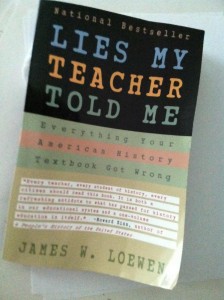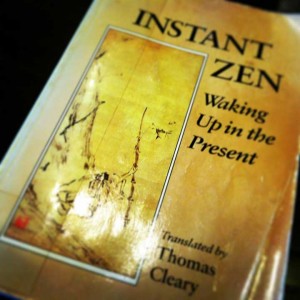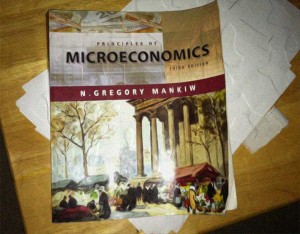Lies My Teacher Told Me is a Touchstone Book published by Simon and Schuster. It has an ISBN of: 0-684-81886-8 and if you enjoy reading the back stories that aren’t exactly popular or perhaps are a bit disturbing…then read on. This book goes way beyond normal American History. It talks about the inaccuracies, exaggerations and sometimes complete falsehoods that are taught in High-School History Courses. Do not read this book if you don’t want your mental concepts challenged. Because Lies My Teacher Told Me does not pull any punches regarding all the Historical Taboos that you can imagine.
First of all, did you know that most of the history we learn from textbooks in High School…isn’t even prepared by Historians? This confused me. In the book, you find out that the people listed as the primary authors on the spine of a High School history book aren’t even remotely part of the authoring process. These names could be from several revisions ago.
Life is so complicated. We often tend to try and find external reasons for why things are the way they are. In this book, James W. Loewen discusses that history doesn’t show how individuals are able to influence tremendous change. Many times, we hear growing up certain names, but they almost seem anecdotal. Individuals aren’t the primary reason why we have certain freedoms…or so we think.
After reading this excellent book, I’ve come to realize that we’re right…actually. History isn’t forged by individuals. And it isn’t made better by groups either.
The things we cherish most about the world and how our civilization function, has been made possible by a string of individuals. It’s like thin strands or chains of people staying true to themselves over time. The length of the chain is the connection these individuals have throughout history. Sometimes several chains of individuals strand together to make intricate weaves and latticeworks of political and conceptual structure. But the root elements are people…people who want to make a difference.
With so many well-researched notes at the end of the book, I couldn’t have felt more satisfied. This is one of the many books I’ve read lately that had not only detailed notes with excellent bibliographic information, but the notes also often include excellent explanations of why the note exists. This was extremely satisfying, it was as pleasing as those extra scenes that happen at the end of modern big-budget action films. I want to know what happens next.
Loewen goes beyond simply talking about misinformation in American History. He discusses the entire process of education and how History for some reason doesn’t get the same type of attention as Math or Science. There rarely are special interest groups that protest or boycott a Math textbook. Yet after reading Lies My Teacher Told Me, I’ve learned about the many levels of decision-making that goes into the publishing of a History Textbook. Did you know that the profits made from History Textbooks is a trade secret? Education is a big business.
I don’t want to give spoilers on this book. Just read it for yourself. You’ll probably know a good chunk of the information in the book already. But I didn’t know more than 70% of the stuff in the book. So that’s pretty good.
-Tyler



